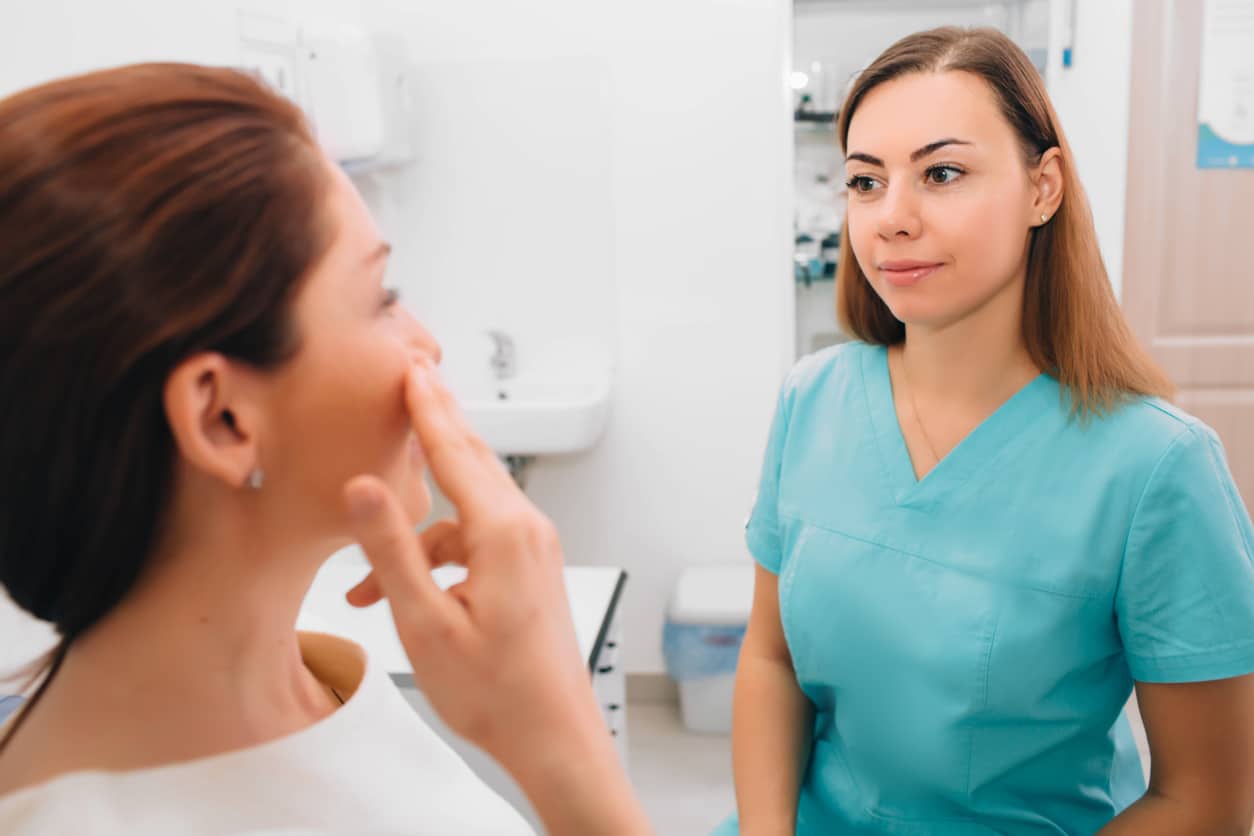A sinus infection, or sinusitis, is an inflammation of the tissues lining your sinuses. During a sinus infection, you may have facial pain, a runny or stuffy nose, postnasal drip, teeth pain, ear pressure or pain and sometimes a fever. While many sinus infections go away within seven to 10 days, others may last longer and require help from a sinus specialist.
Signs I Need To See a Sinus Specialist

You should make an appointment to see a sinus specialist if any of the following are true for you.
- You get four or more sinus infections a year (recurrent sinusitis).
- Your sinus infections last for 12 weeks or longer (chronic sinusitis).
- You have trouble breathing through your nose for more than a few days.
- You develop nasal polyps.
- Your sinus infections cause serious sleep troubles or loud snoring.
- You’ve had sinus surgery in the past.
- You haven’t found sufficient relief from nasal sprays, antibiotics or cold and allergy medicine.
How Can a Sinus Specialist Help Me?
A sinus specialist can examine your sinuses, ears and throat to pinpoint the root cause of your sinus issues. A few common causes include:
- Structural abnormalities in the sinuses
- Nasal polyps
- Colds and flu
- Allergies
- Bacterial infections
- Smoking
- A weakened immune system
Depending on the cause, your sinus specialist will tailor a treatment plan to relieve your symptoms. Common treatments include:
- Balloon Sinuplasty. Balloon Sinuplasty is a minimally invasive surgery to lower the risk of recurring and chronic sinus infections. During a Balloon Sinuplasty, your sinus specialist will guide a small balloon through your nose and inflate it to expand the sinus passages.
- Functional endoscopic sinus surgery (FESS). FESS is another minimally invasive sinus surgery option. During FESS, your sinus specialist will guide a small endoscope through the nostrils to the sinuses to get a better look at the obstruction. They will then use specialized instruments to remove tissue and widen the pathways.
- Propel sinus implant. A Propel sinus implant is a dissolvable implant that delivers anti-inflammatory steroids through your sinus tissue. Your sinus specialist will likely place the implant during FESS.
- Allergy management. Allergies can cause inflammation in the sinuses and increase your likelihood of sinus infections. Managing your allergies through medication, immunotherapy or avoidance can make a huge difference in your sinus health. For example, if you’re allergic to pollen, they may recommend taking medication and avoiding places like Haggard Park on high-pollen days.
Sinus issues are uncomfortable, but we can help. Contact Collin County ENT today to make an appointment with one of our sinus specialists.